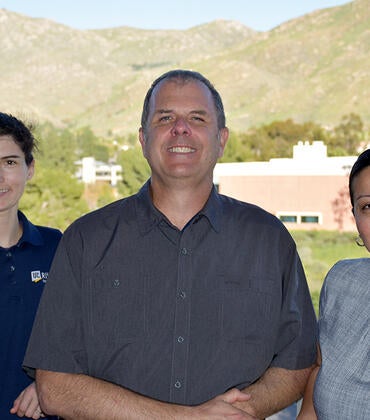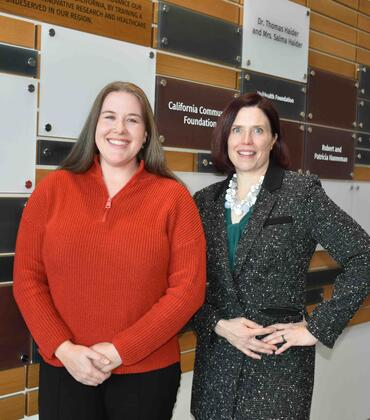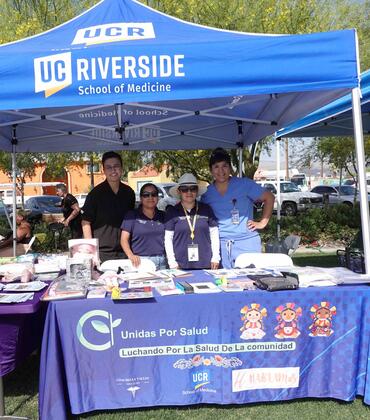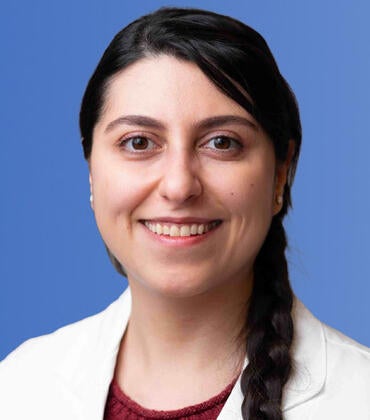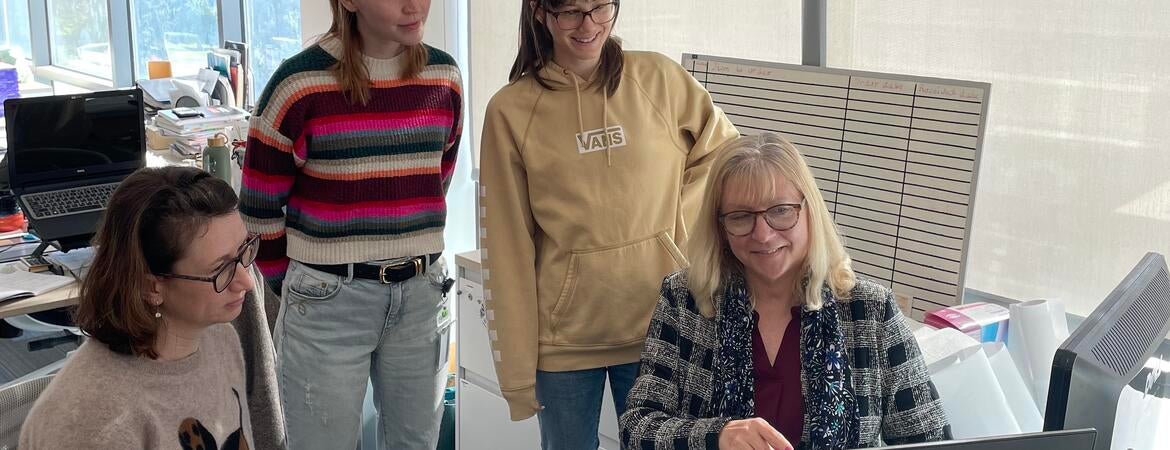
At a neurology conference a few years ago, Iryna Ethell, PhD, the associate dean of academic affairs and a professor of biomedical sciences at the UCR Riverside School of Medicine, noticed that children with autism would sit quietly for hours, scream suddenly, then sit quietly again.
When she asked the kids about this behavior, she learned that the screaming helped reset their brain after being overwhelmed by their hypersensitivity to background noise. Furthermore, the kids mentioned that music with specific beats helped reduce their sensory overload along with their anxiety.
These conversations led to Ethell’s research on music for autism. While her initial studies have been in mouse models, her findings have indicated that developmental exposure to sound could reduce anxiety and hyperactivity, with possible benefits for young people with autism. She also examined whether exposure to certain sounds could help adult mice, since children in medically underserved areas like the Inland Empire may not receive a diagnosis or medical attention at a young age.
Serving the underserved
Ethell herself came from an underserved community and said she identifies with people in Riverside, the city she now calls home. Growing up in Ukraine, she said her family lived salary to salary, and that her father was unable to finish high school because of World War II.
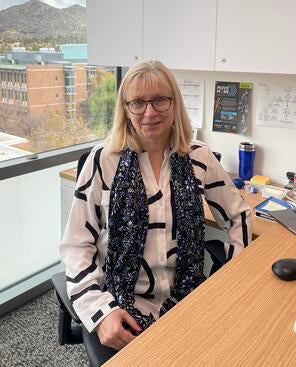
When she and her husband, Doug Ethell, PhD, moved to San Diego for their postdoctoral work, they still struggled to make ends meet. “San Diego is a very expensive place to live,” Ethell said. “We lived on two postdoctoral salaries and with two kids and then daycare, we again were salary to salary, so I really relate to the people in Riverside.” She’s now committed to the local community. “I think it's a great place to move to, it's just really important to make sure that the people here have access to good healthcare if they need it, so they don't have to go to San Diego and LA to see a doctor,” she said.
As a postdoctoral researcher at the Sanford Burnham Prebys Medical Discovery Institute, Ethell originally planned on a career with a pharmaceutical company. “Coming from a different country, I never dreamed that I would have a faculty position,” she said. In fact, UCR was the only academic role she applied for, deciding to try after her husband noticed an advertisement for the biomedical sciences position.
Her interview was set for September 11, 2001. As the terrorist attacks were reported on the news, she at first wasn’t sure if her interview would continue as scheduled, or what to expect when she arrived on campus. “Considering the circumstances, everybody was very friendly, very collegial, very welcoming,” she recalled. “They didn't look at me like a stranger though I have an accent and I came from a different country.”
An outstanding mentor
Ethell also felt attracted to the university because her experience as a first-generation college student helped her identify with many UCR students. “There were a lot of students at UCR who have similar paths, where their parents didn't have a four-year college degree and they had to figure it out all themselves,” she said. “I felt like I could relate to that and I really appreciated that drive and determination.” She officially joined UCR in January 2002.
Ethell contributed to the development of the UCR School of Medicine from the UCR/UCLA Thomas Haider Program in Biomedical Sciences, with the four-year medical school opening in 2013. In addition to conducting research at the university, Ethell said she enjoys teaching medical students. From her time serving on the admissions committee, “I can see how difficult the path was for some of those students to get to medical school,” she said. “Their families had to make some sacrifices which is something I really value, and I enjoy teaching students that really want to be here.”
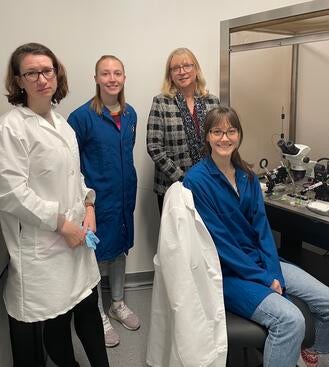
One such student is Samantha Sutley-Koury, a biomedical sciences PhD candidate from Rancho Cucamonga who said Ethell’s experience has helped her navigate her first-generation status. “I felt really supported in a lot of ways by Dr. Ethell, because there's a lot of impostor syndrome and feeling like maybe you don't belong,” Sutley-Koury said.
Ethell also helped Sutley-Koury attend a conference in Spain, which they traveled to together. “Even when we were on that Spain trip, I know she was taking calls in the middle of the night to help the med students,” Sutley-Koury recalled. “She really goes above and beyond for the students and she cares about them.” Sutley-Koury added that Ethell has nominated her for awards and encouraged her to apply for fellowships, leading to Sutley-Koury’s next step as a postdoctoral researcher at Stanford University in spring 2024.
Former student Crystal Pontrello, PhD echoed Sutley-Koury’s praise. Ethell “always provided an environment that was conducive to both exploration and excellence, and she spent the time to provide opportunities and train me and to set me up for future success,” said Pontrello, now a senior scientist of translational neurology at an RNA editing company. “She’s definitely left her mark, and I’m grateful to have had the experience of working in her lab.”
In recognition of her mentorship, the SOM presented Ethell with the Outstanding Mentor of the Year Award in 2023. “As busy as I am, I would never give up my teaching because I really get joy from passing on what I learned, and hopefully helping students get where they're going,” Ethell said.
Ethell also supports faculty and staff through her role as associate dean of academic affairs at the School of Medicine. “[When I was] a new supervisor, Dr. Ethell has made it a point to carve out time in her already busy schedule between her responsibilities in her admin and research roles to meet regularly to check in with me,” said Margi Burnett, the director of academic affairs. Burnett added that Ethell encouraged her to participate in conferences and established professional development workshops. “Dr. Ethell is a true mentor in every sense,” she said, as her team members additionally noted Ethell’s dedication to the school’s mission and advancement.
Focusing on the community
Ethell’s commitment to the mission of the SOM--improving the health of people in Inland Southern California--is clear in her research. Her studies in mice have indicated that early exposure to various sounds can make a positive difference with autism. “But I don't see how someone here who has to work all day to feed their family can take their kids to clinical trials that are done somewhere on the East Coast,” Ethell said.
Ethell is focused on increasing awareness and sharing information about resources with people in the area, and hopes to restart the community sessions that were interrupted by the COVID-19 pandemic. “Hopefully, people from Riverside County will listen to me because I'm doing the research here,” she said. “They may not pay attention to what's going on in Boston.”
She also values meeting parents and kids with autism to learn what’s important to them. “In the lab, you can lose track of why you’re doing something,” she explained. “Interacting with them and understanding what their problems are helps you to actually focus your research so you can actually contribute meaningfully.” She added that they often remind her that autism is a condition, not a disease, and therefore can’t be cured. “They want to improve their day to day lives, get help with seizures they have and anxiety and some other traits that interfere with their daily life.”
As Ethell continues her research and increases her focus on genetics, she said she’s happy to be at UCR and to see her department develop over the past two decades, particularly as biomedical sciences celebrates its 50th anniversary in 2024.
“I think as we grow and evolve and change, that has made us stronger over the past 50 years,” Ethell said. “If we hadn’t, it would still be the same program as 50 years ago and we would not be where we are now with an exciting time ahead of us.”
